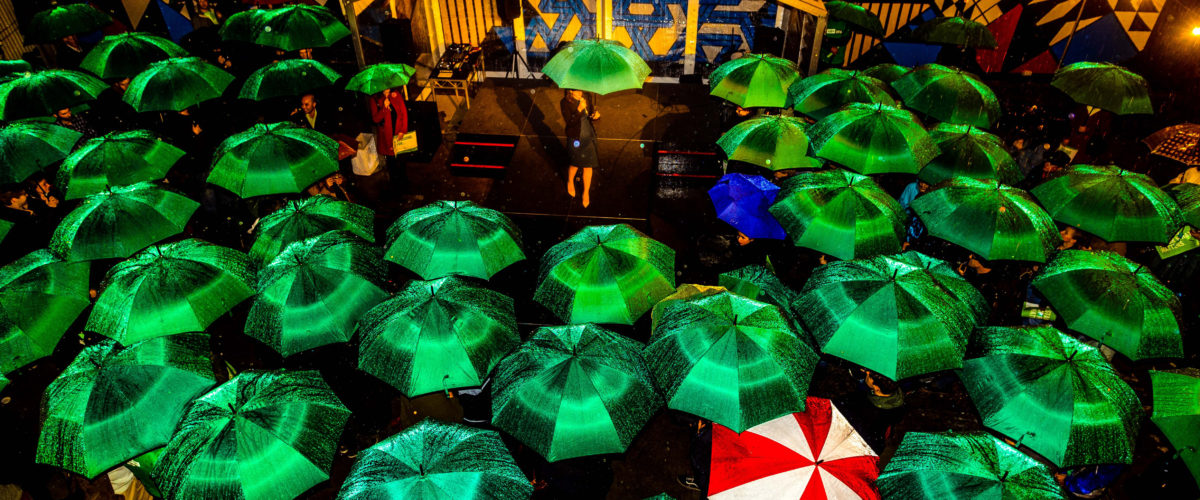Yesterday the South Australian Greens made their play for the state elections planned for 19 March 2022 by pledging to reverse privatisation of South Australia’s energy system, invest $8.7 billion over four years in more than 7 GW of publicly owned renewable energy and storage and set aside $2 billion of its investment to provide free solar and storage to 200,000 low-income households and renters.
The proposed social-justice-focused package, which also includes a huge increase in public housing and introducing free public transport, would be funded by substantial tax increases on mining companies operating in South Australia, big banks and property developers, that amount to a $6.9 billion kitty over four years.
Greens’ member of the South Australian Legislative Council, Robert Simms, launched the campaign, describing the privatisation of the state’s electricity system along with the the decline of public housing as “disastrous”.
“Since privatisation in 1999 electricity prices in South Australia have increased 216%,” the Greens assert in their plan, which is titled A bold vision for South Australia.
The party’s pitch blames the move away from the publicly owned Electricity Trust of South Australia (ETSA) as the reason why South Australians pay the highest electricity prices in Australia, and calculates that its measures to bring electricity generation, retailing and network provision back into public hands.
The revived ETSA, with a mandate to run at cost, and not for profit — would reduce the average energy bill of constituents by $409 per annum.
The Greens cite the ever declining cost of batteries, solar and wind, and last week’s damning Intergovernmental Panel on Climate Change Sixth Assessment Report, as reason to invest massively and rapidly now in renewable energy generation and storage.
They’re not wrong, but their plan ignores any mention of the state’s success to date in doing just that.
Under Jay Weatherill’s more than six years of Labor rule to 2018, and the subsequent and ongoing stewardship of Steven Marshall’s Liberal Party, the Government of South Australia has managed and continues to evolve South Australia’s energy transition ahead of other Australian states and an international pack.
It is widely regarded as a trailblazer in its policies which have incentivised rooftop solar and battery uptake, including for homes unsuited to solar installation, supported development of virtual power plants, pioneered the use of a massive battery to stabilise the grid, and continue to innovate in the integration of variable renewable energies to the grid.
The Greens, however, say that “Essential services like electricity should not be in private hands and run for profit,” and highlight the creation of jobs — 9,600 in renewable energy installation and maintenance, and 10,000 in building 40,000 new public-housing homes — as one of the key social outcomes of their policies.
Another pillar of their policy will be to fund a free public transport system at a cost of $433.4 over four years, and invest $1 billion in improving the transport network.
Premier Stephen Marshall responded saying his Liberal Government is focused on jobs creation, administering a $7.4 billion health budget, and delivering essential infrastructure that will free South Australians from the tyranny of traffic jams.
The Greens hope to win the balance of power in South Australia’s upper house, perhaps by garnering votes from disaffected followers of all parties in the state, including SA Best since the retirement from politics of its founder Nick Xenophon.
.@greensSA is proposing huge mining, bank and developer taxes for cheap power and free public transport. What do you think of the idea? Details: https://t.co/TY7C2uvFEs #saparli #TheAdvertiser pic.twitter.com/T9g0Sm8Y3U
— The Advertiser (@theTiser) August 14, 2021
SA Best’s current elected members, Connie Bonaros and Frank Pangallo, recently criticised the state government’s budget for overspending on “big-ticket” items such as a $700 million entertainment centre, which they say the state cannot afford.
They added that such expenditure shows that Marshall’s Liberal Party is out of touch with a community struggling with “the worst unemployment rate in Australia, a mental health system at breaking point, the Women’s and Children’s Hospital in crisis, public hospital EDs overflowing and ambulance ramping at record levels”.
The Greens come at government deficit, the growing inequalities exposed by the Covid-16 pandemic, inadequate social services and resulting community hardship, from a different perspective, saying the big end of town — the miners, banks and property developers — should pay their “fair share of tax” to help fund a more equitable society; and tackle global warming and boost employment through still greater investment in renewable energy.
This content is protected by copyright and may not be reused. If you want to cooperate with us and would like to reuse some of our content, please contact: editors@pv-magazine.com.









By submitting this form you agree to pv magazine using your data for the purposes of publishing your comment.
Your personal data will only be disclosed or otherwise transmitted to third parties for the purposes of spam filtering or if this is necessary for technical maintenance of the website. Any other transfer to third parties will not take place unless this is justified on the basis of applicable data protection regulations or if pv magazine is legally obliged to do so.
You may revoke this consent at any time with effect for the future, in which case your personal data will be deleted immediately. Otherwise, your data will be deleted if pv magazine has processed your request or the purpose of data storage is fulfilled.
Further information on data privacy can be found in our Data Protection Policy.